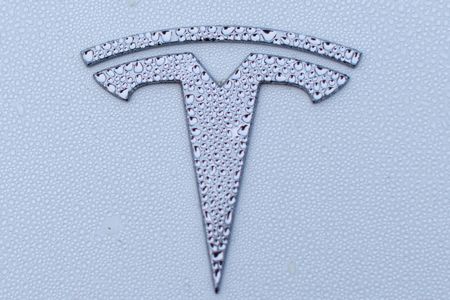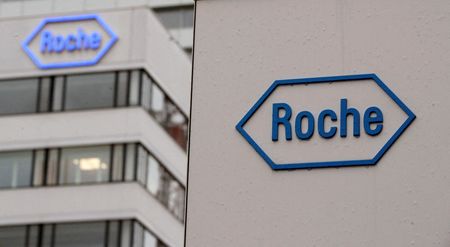By Joel Jose and Akash Sriram
(Reuters) -Tesla shares fell 3.2% in premarket trading on Thursday after the Elon Musk-led electric vehicle maker extended its streak of profit misses to a fourth quarter due to pressure from rising costs, even as sales hit record highs.
Declining revenue from highly profitable regulatory credits also strained the company’s margins, showing that even Tesla is not immune to the cost pressures affecting the auto industry as President Donald Trump continues to overhaul U.S. policy.
In the third quarter, the company’s costs rose sharply, including more than $400 million in tariffs on auto parts due to Trump’s trade policies, said CFO Vaibhav Taneja.
“The margin compression is the real concern. Higher operating expenses, increased tariffs and lower regulatory credit revenue all hit at once,” said Farhan Badami, market analyst at eToro.
“Tesla is navigating near-term headwinds by cutting costs and managing inventory, but the long-term value story hinges on products that are still some time away from commercial payoff.”
Musk’s ongoing pivot to position Tesla as a company focused on robotics and self-driving technology has helped restore some investor optimism.
The company’s valuation now largely hinges on the promise of future growth from robotics and AI, even though vehicle sales account for the vast majority of its revenue.
The company is set to lose more than $45 billion of its $1.47 trillion valuation, the largest for an automaker globally, if the losses hold.
The stock was trading at more than 200 times the company’s profit expectations, significantly higher than Big Tech and other megacap stocks.
Tesla’s stock has experienced sharp swings in 2025. The shares dropped as much as 39% through March amid weak demand and political backlash tied to Musk’s ties with the Trump administration, which led to boycott calls.
The stock turned positive this year after Tesla’s board laid out a $1 trillion CEO compensation plan last month for shareholder approval, hoping to incentivize Musk to focus on the company’s growth.
The shares have gained nearly 9% so far this year, although it remains one of the weaker performers among the “Magnificent 7”, a group of megacap technology companies.
Record electric vehicle deliveries helped Tesla beat third-quarter revenue forecasts, driven by a rush among U.S. buyers to secure tax incentives before they expire. However, demand for EVs is expected to fall in the coming quarters as key credits phase out.
To stimulate sales, Tesla recently introduced lower-cost “Standard” versions of its Model Y and Model 3, which cost up to $5,500 less than the “Premium” versions.
(Reporting by Joel Jose in Bengaluru; additional reporting by Danilo Masoni in London; Editing by Amanda Cooper, Mrigank Dhaniwala and Shinjini Ganguli)











